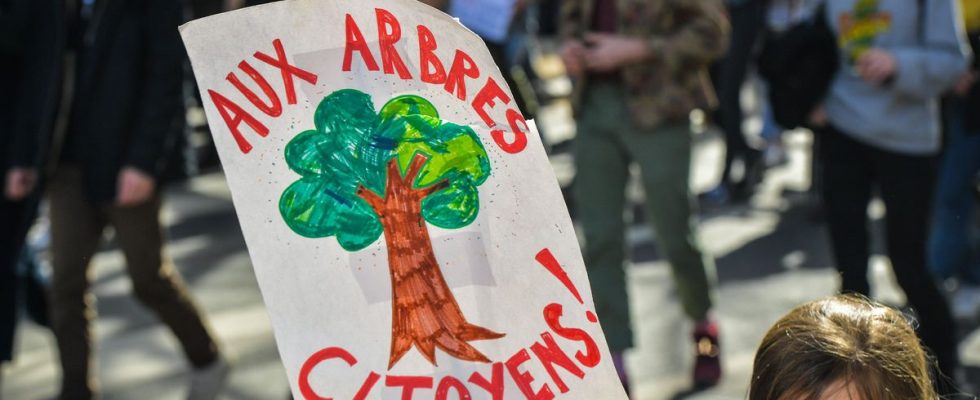They have not yet been submitted to the vote but are in a way “already adopted”. This Friday, the 219 proposals formulated by a hundred inhabitants drawn by lot for the Citizen’s Climate Convention will be examined by the elected representatives of the Metropolitan Council of Grenoble. A first from a local point of view. “We are committed to getting the whole project through,” says Pascal Clouaire, vice-president of the metropolis. A method, “completely opposite” to that of the State, he stings.
In 2021, only 10% of the 149 resolutions issued for this “unprecedented democratic experience in France”, were taken up in 2021 by the government, as analyzed it Reporterre. Two years earlier, Emmanuel Macron asserted, however, that “what would come out of this Convention would be submitted without filter either to the vote of Parliament, or to a referendum, or to direct regulatory application”. How to ensure that this scenario will not happen again in the capital of the Alps? 20 minutes make the point.
Guarantees from elected officials
In 2021, when the Grenoble metropolis launched the idea of a convention on the subject of the climate, one of the first conditions was that it would not organize it itself. For this, an “operational committee”, an independent body of ten people, was created to direct the work of the participants. For ten months, three hours a week, the group met on a voluntary basis to ensure the smooth running of the project.
“Our main fear was of being put away in a drawer once the recommendations were made,” explains Sabine Lavorel, co-chair of this committee. We needed guarantees beyond promises. The elect then got involved. If ever they are unable to agree on proposals during the council, a citizen vote will be put in place. »
A panel “truly” representative of society
The Grenoble project also stands out on its panel. The hundred participants were “representative of all the inhabitants of the 49 municipalities of the metropolis”, specifies Sabine Lavorel. “Beyond the criteria of sex, socio-professional categories, diplomas or age, we imposed a condition of sensitivity to the protection of the environment, she develops. We followed the study which shows that climate change is one of the three priorities for around 20% of French people. This means that 80% of the people selected did not feel concerned by these questions at the start at launch. We wanted at all costs to avoid discrediting the work undertaken by implying that we were all left-wing green sores. »
Once drawn, the hundred or so citizens had to answer two questions: What recommendations would you make to the metropolis to reduce greenhouse gas emissions by 2030? And to achieve neutrality by 2050 in a context of climate emergency? “There too, we make the difference, insists the teacher-researcher. The question to which the 150 citizens of the National convention had to answer was difficult to understand. »
Emphasis was placed on the changes that seemed “acceptable and a priority for everyone in the fight against climate change”, specifies the co-chair of the group. Mobility was, according to her, “the central concern”, because in many municipalities, transport does not compensate for the need for one (or more) personal vehicle. Hence the importance of not having “convinced”, she insists.
A project based on “citizen involvement”
For Pascal Clouaire, it is exactly these parameters that allow the “success” of such a project. “We cannot make an ecological transition without collective intelligence. And to achieve this, we need the involvement of citizens. Our desire was to make people work together and show them that they could trust us”, exclaims the vice-president of the metropolis.
He adds: “60% of the recommendations are measures that have already been put in place by the metropolis but which must be intensified to meet the deadlines. The choices to be made will translate into a budget. To go further, our next challenge is to make the 49 municipalities work together, in a logic of solidarity. But that is the history of Grenoble. »
Grenoble, pioneer on the climate and citizen participation
It is no coincidence that this experiment was done on the territory, according to the elected official. “Issues that affect the climate, in the same way as citizen participation and therefore the climate convention are part of our culture. And climate change is happening twice as fast here as elsewhere, ”notes the elected official.
In this sense, the metropolis is a “pioneer” in the field. “We took the lead a long time ago, observes Pascal Clouaire. But we don’t think things through to be the first. We do it because it is necessary to do it. Leading by example is not simply displaying ambitions, it is demonstrating that reality follows our concrete commitments. »
“Local political responsibilities are easier to hold than at a national level”, points out the teacher-researcher who hopes that this agreement will have an impact on the future.

